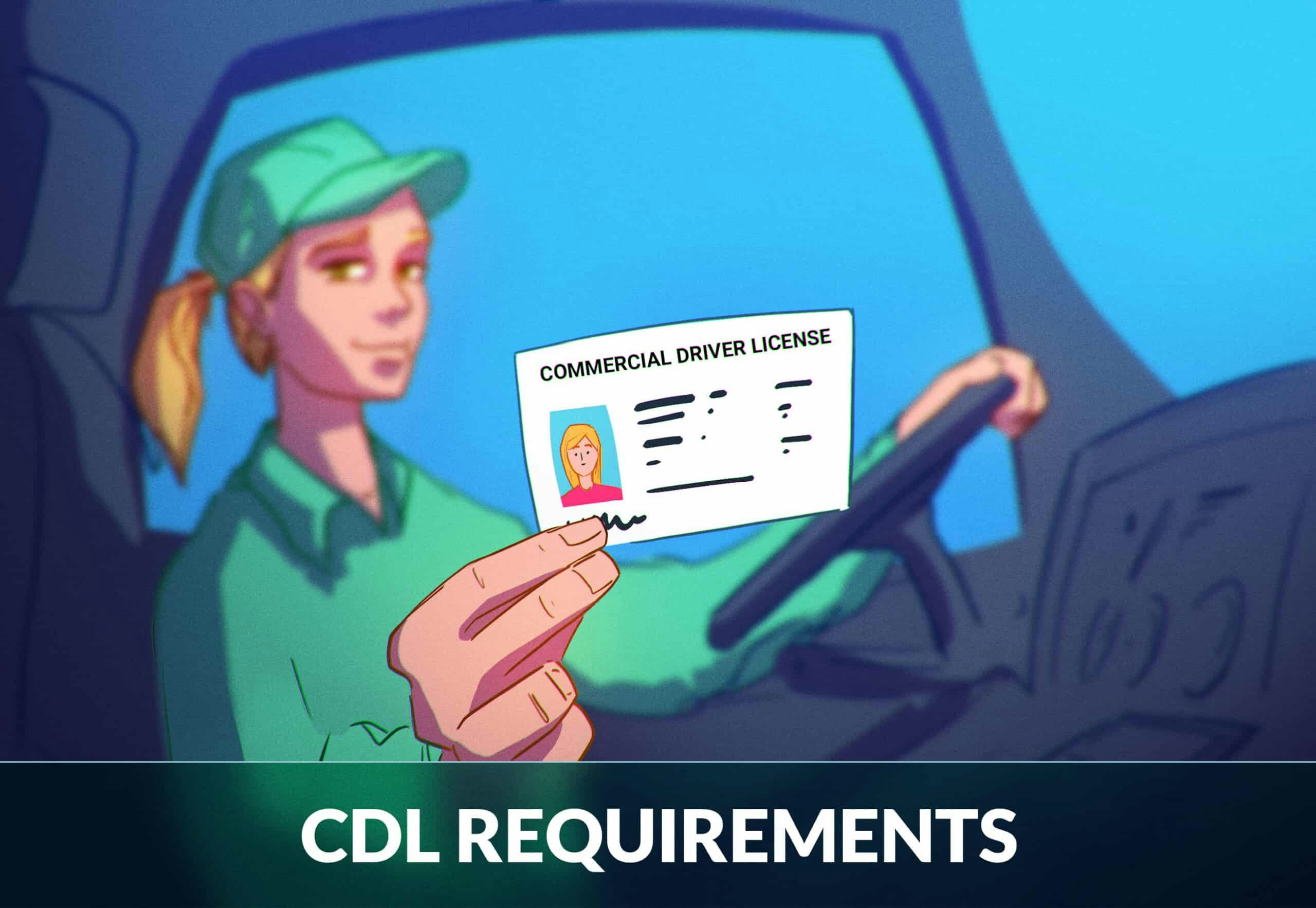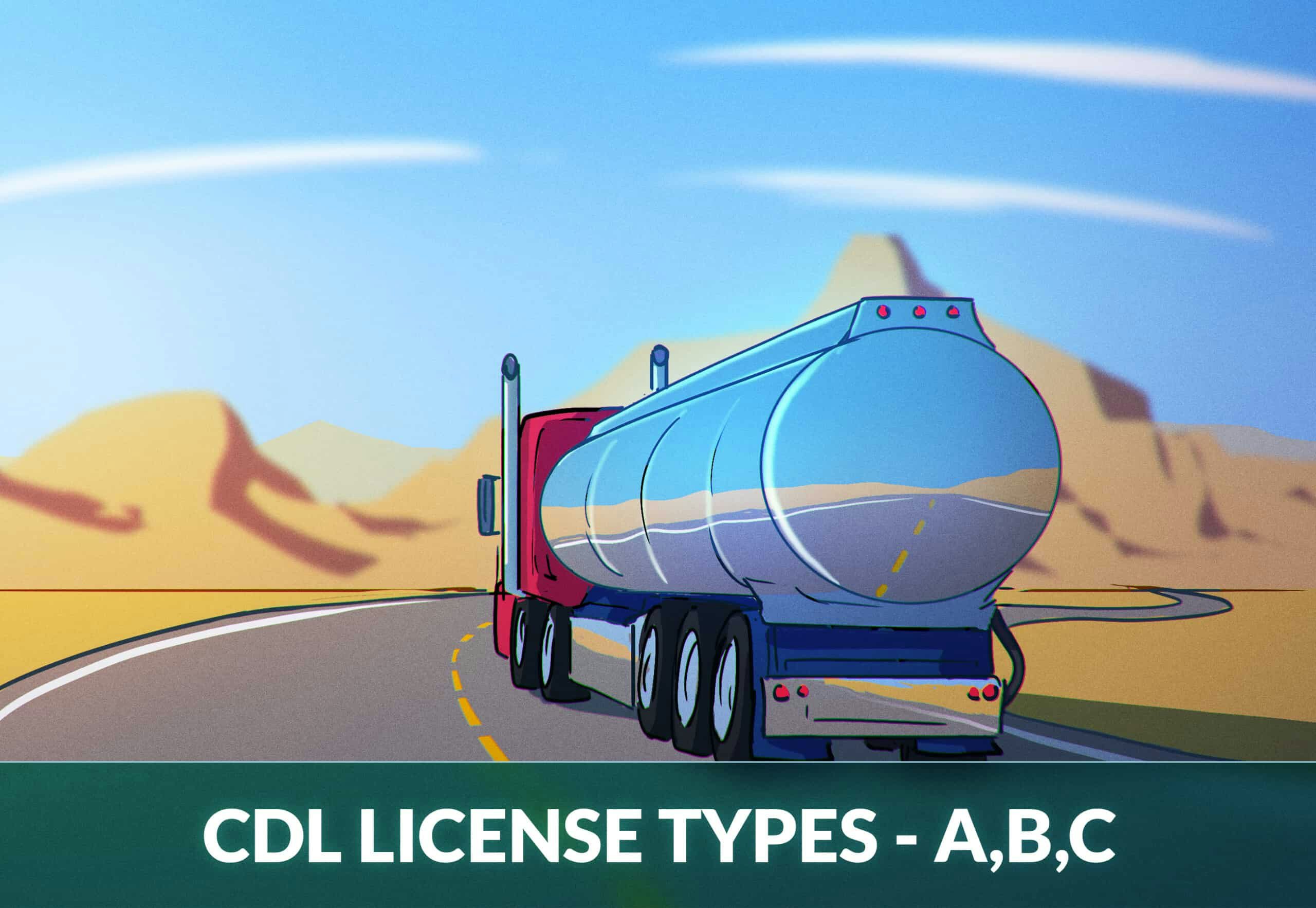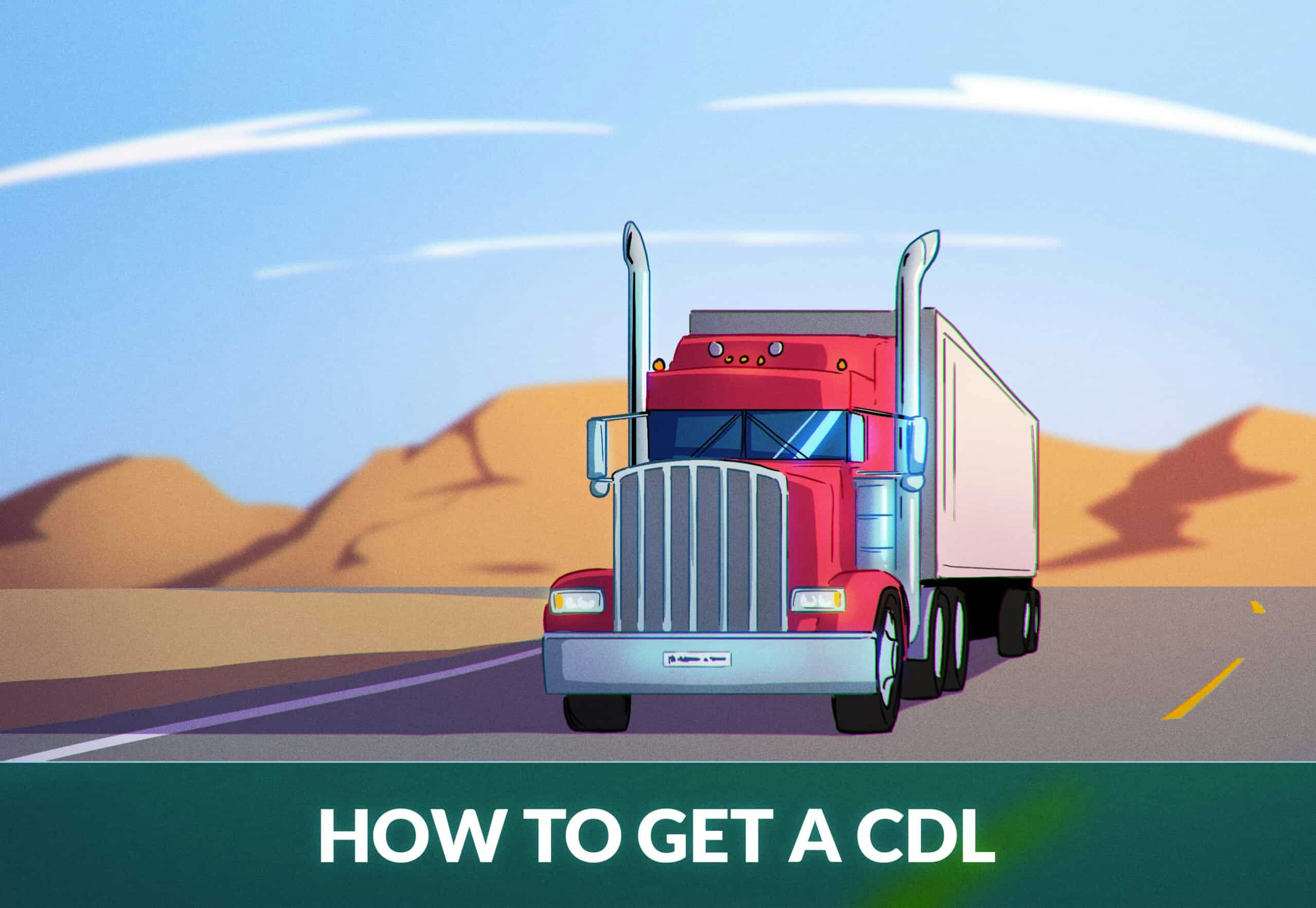
Getting a CDL in North Carolina
A CDL is required to operate certain types of commercial vehicles, such as tractor trailers, buses, and vehicles carrying hazardous materials. In this article, we will go through the steps and requirements for getting a CDL in North Carolina.
For more info, visit the NCDMV website.
Minimum Requirements for Getting a NC CDL
- Be at least 18 years old (or 21 years old to operate a commercial vehicle across state lines).
- Have a valid North Carolina driver’s license.
- Study with an approved provider registered in the Training Provider Registry.
- Pass a written knowledge test for the class and endorsements you need.
- Pass a skills test.
- Meet the medical requirements (More on this later)
- Provide proof of your identity and residency in North Carolina. This may include a valid driver’s license, birth certificate, or passport, as well as documents such as a utility bill or bank statement to prove your residency.
- Pass a vision test, with at least 20/40 vision in each eye, with or without corrective lenses, and the ability to distinguish basic colors.
- Have a valid Social Security number.
- Pay any required fees.
Read more about the general process, forms, and the application process here.
Since February 7, 2022, the Federal Motor Carrier Safety Administration (FMCSA) requires that drivers meet the new Entry-Level Driver Training (ELDT) regulations.
- If you wish to take the written test in order to obtain a Class A or Class B CDL, upgrade an existing CDL, or receive an initial school bus, passenger or hazardous material endorsement, you must receive theory training from an approved theory training provider listed in the FMCSA Training Provider Registry (TPR).
- To take the road skills test, you must receive behind-the-wheel (BTW) training from an approved BTW training provider listed in the TPR.
Zutobi is an FMCSA approved online theory training provider registered in the Training Provider Registry.
CDL Classes
There are three classes of CDLs: Class A, Class B, and Class C.
- Class A CDL – required for operating vehicles with a gross combination weight rating of 26,001 pounds or more, provided the vehicle being towed has a GVWR of more than 10,000 pounds.
- Class B CDL – required for operating vehicles with a GVWR of 26,001 pounds or more, but the vehicle being towed has a GVWR of 10,000 pounds or less.
- Class C CDL – required for operating vehicles with a GVWR of less than 26,001 pounds, but the vehicle is designed to transport 16 or more passengers (including the driver), or it is used to transport hazardous materials that require placarding under 49 CFR Part 172, Subpart F.
Endorsements
In addition to obtaining a CDL for the appropriate class, you may also need to obtain certain endorsements for certain types of CMVs, or cargo.
- T: Double or triple trailers
- P: Passenger vehicles designed to transport 16 or more passengers, including the driver
- N: Tank vehicles
- H: Hazardous materials that require placarding
- X -Tank vehicle/hazardous materials combination
- S -School bus
NC CDL Knowledge Test and Skills Test Requirements
To obtain a CDL in NC, you must pass both a written knowledge test and a skills test. Remember that you must study with an approved provider in the TPR in order to take certain written tests or road skills tests. You can find approved providers in the Training Provider Registry.
Knowledge Test
The written knowledge test covers the rules and regulations for operating a commercial motor vehicle, as well as safe driving practices. The knowledge test consists of 25 questions, and you must answer 20 correctly to reach a passing score of 80%.
Road Skills Test
The skills test consists of a pre-trip vehicle inspection test, a basic vehicle control test, and an on-road driving test.
- The pre-trip vehicle inspection test assesses your knowledge of the vehicle’s components and your ability to identify any defects or malfunctions.
- The basic vehicle control test measures your ability to control the vehicle, including making turns, backing up, and braking.
- The on-road driving test evaluates your ability to safely operate the vehicle in a variety of driving situations, including highway driving and negotiating intersections.
Medical Requirements
The medical examination will assess your overall health and any medical conditions that may affect your ability to safely operate a commercial motor vehicle. This may include a review of your medical history, a physical examination, and any necessary testing.
You must have a valid Medical Examiner’s Certificate, also known as a DOT medical card. This certificate verifies that you are physically fit to operate a commercial motor vehicle.
- Have a medical examination performed by a licensed medical examiner.
- Provide the medical examiner with a completed Medical Examination Report Form (Form MCSA-5875).
- Submit the completed form to the North Carolina DMV.
If the medical examiner determines that you meet the FMCSA’s medical standards, they will issue you a Medical Examiner’s Certificate.
Keep your Medical Examiner’s Certificate current at all times while operating a commercial motor vehicle. If your certificate expires or you have a change in your medical status that affects your ability to safely operate a commercial motor vehicle, you must obtain a new certificate.
Self Certification
North Carolina CDL holders have to certify to their State Driver Licensing Agency (SDLA) that they only operate or expect to operate commercially in 1 of 4 possible categories with their CDL, called self-certification.
- Interstate non-excepted
- Interstate excepted
- Intrastate non-excepted
- Intrastate excepted
Read more about medical certification requirements here.

550+ exam-like questions
All you need to ace your test
Perfect for first-timers, renewals and senior citizens
Recommended articles
Country
Ace your DMV test, guaranteed


